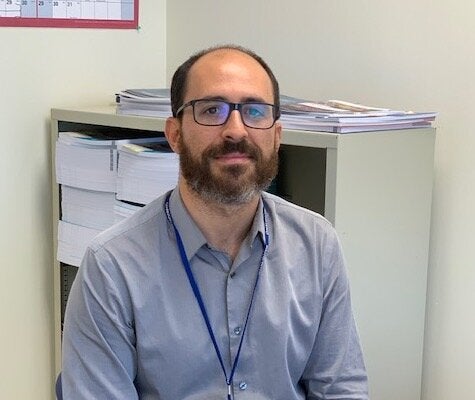PAHO/WHO Collaborating Centre Spotlight Series
Reference Number: CAN-87
Official Title: PAHO/WHO CC for Nutrition Policy for Chronic Disease Prevention
Institution: Department of Nutritional Sciences (DNS), University of Toronto
Reference Number: CAN-98
Official Title: PAHO/WHO CC on Nutrition Changes and Development
Institution: Department of Nutrition, Faculty of Medicine, Université de Montréal
Reference Number: USA-425*
Official Title: PAHO/WHO CC on Implementation Research in Nutrition and Global Policy
Institution: Division of Nutritional Sciences, Cornell University
Category 2 (SP 14-19)
Outcome 13 (SP 20-25)
Mr. Leo Nederveen, Advisor, Food, Nutrition and Physical Activity in Schools, Dr. da Silva Gomes, Advisor, Nutrition and Physical Activity and Dr. Luis Gabriel Cuervo, Advisor, Research for Health, are the PAHO staff members who acts as the Region’s focal point to coordinate the collaboration between the institution and the Organization.
The main activities for these Centres include: (1) supporting the base-line and intermediate data collection, cleaning and analysis of salt content in packaged foods; (2) providing technical advice and training courses for public health professionals; (3) developing technical publications and research proposals; and (4) delivering presentations during regional webinars.
The Centre at the University of Toronto supported the collection, cleaning and analysis of data on salt content in packaged foods in 14 Latin American countries which serves as baseline data of sodium levels in packaged foods sold in the Region. In 2017, this Centre repeated the study in Brazil, Costa Rica,Paraguay and Peru and most recently has provided technical guidance for a research proposal to complete similar research in other countries.
Additionally, this Centre has provided technical advice to PAHO/WHO through the mapping of existing policies with the goal of reducing salt consumption in the Region. Lastly, this Centre has also given presentations during regional webinars, including during Salt Reduction Week in March 2019.
The Centre at the University of Montreal is currently developing a technical publication that will focus on food classification within dietary guidelines across Latin America. Also, the Centre is currently developing research proposals which focuses on evaluating the impact of food based dietary guidelines and the food industry’s interference in the process of formulating guidelines. Lastly, the Centre is developing content for an online course in English, Spanish and French on the classification of foods based on food processing levels and PAHO’s nutrient profile model.
The Centre at Cornell University has collaborated with the WHO and the Cochrane organization to create the Summer Institute for Systematic Reviews in Nutrition for Global Policymaking. This two-week Institute has trained 148 systematic reviewers on integrating scientific evidence with regional and global policies. The majority of attendees are from the Region of the Americas and are experts in their field within their respective countries. The attendees develop skills related to conducting overviews, integrating evidence into policies, presenting proposals to policy makers and implementing strategies related to working with policymakers. Also, joint efforts between attendees and the Summer Institute staff are now contributing to the development of research teams across the Region. For example, the Institute has engaged with a group of pediatricians from Ecuador, originally trained at the Summer Institute, to work on nutrition and antibacterial resistance systematic reviews to build capacity for locals.
The Centre also contributes to the micronutrients database of the WHO-hosted Vitamin and Mineral Nutrition Information System.
Webnotes such as these serve to inform how Collaborating Centres are contributing to the Organization’s priorities and mandates.
*CC now designated as USA-357.




